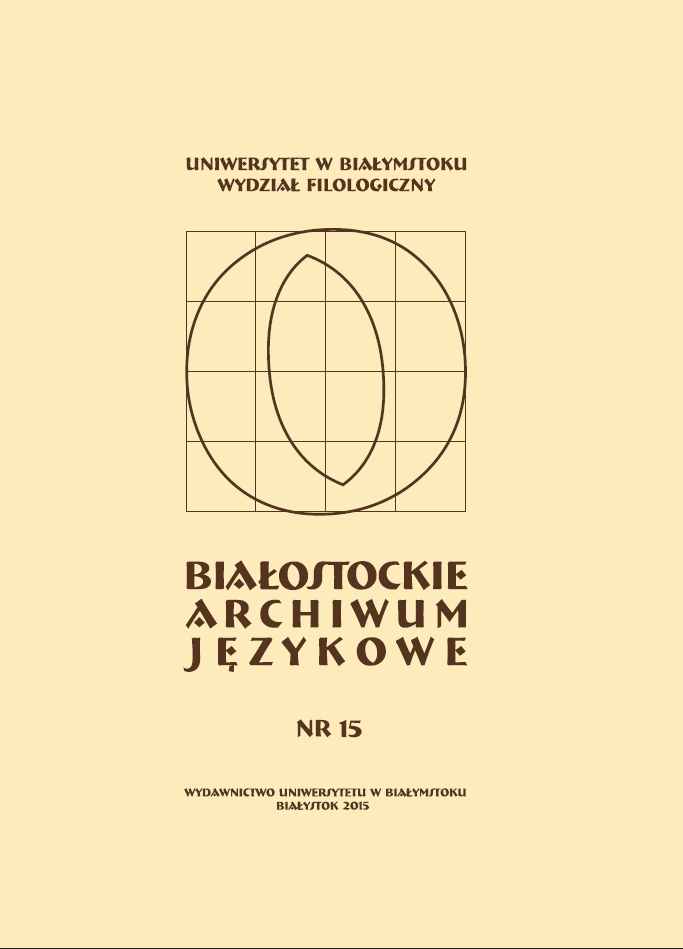Selected issues of nominalizations as propositional arguments in Polish and Slovene sentences with psych-verbs
Selected issues of nominalizations as propositional arguments in Polish and Slovene sentences with psych-verbs
Author(s): Agnieszka ZatorskaSubject(s): Language and Literature Studies, Semiotics / Semiology, Theoretical Linguistics, Syntax, Comparative Linguistics
Published by: Wydawnictwo Uniwersytetu w Białymstoku
Keywords: Semantics; syntax; nominalizations; Polish; Slovene; Psych-Verbs
Summary/Abstract: In this paper a hypothesis concerning the occurrence of nominalizations in the position of the propositional argument assigned by a psychological predicate was tested with sets of 60 (30 + 30) Polish and Slovene verbs from the semantic field of thinking and feeling. In line with Semantic Syntax Methodology, the semantic and the syntactic (formal) levels of representation were separated. Predicates and arguments are elements of the Predicate-Argument Structure on the semantic level of representation. The observations demonstrate that the typical way of the realization of the propositional argument in the place opened by Psych Verbs, in the place of complex predicates, is nominalization. Such a manner of explication covers 90% of the tested 2- and 3-argument verbal units in Polish and Slovene from the field of the intellect as well as emotions. The analysis shows that only 10% of the examined verbs in each language (Polish and Slovene) do not allow the realization of the propositional argument as nominalization. The results in this respect are similar in Polish and in Slovene.
Journal: Białostockie Archiwum Językowe
- Issue Year: 2015
- Issue No: 15
- Page Range: 477-490
- Page Count: 14
- Language: English

